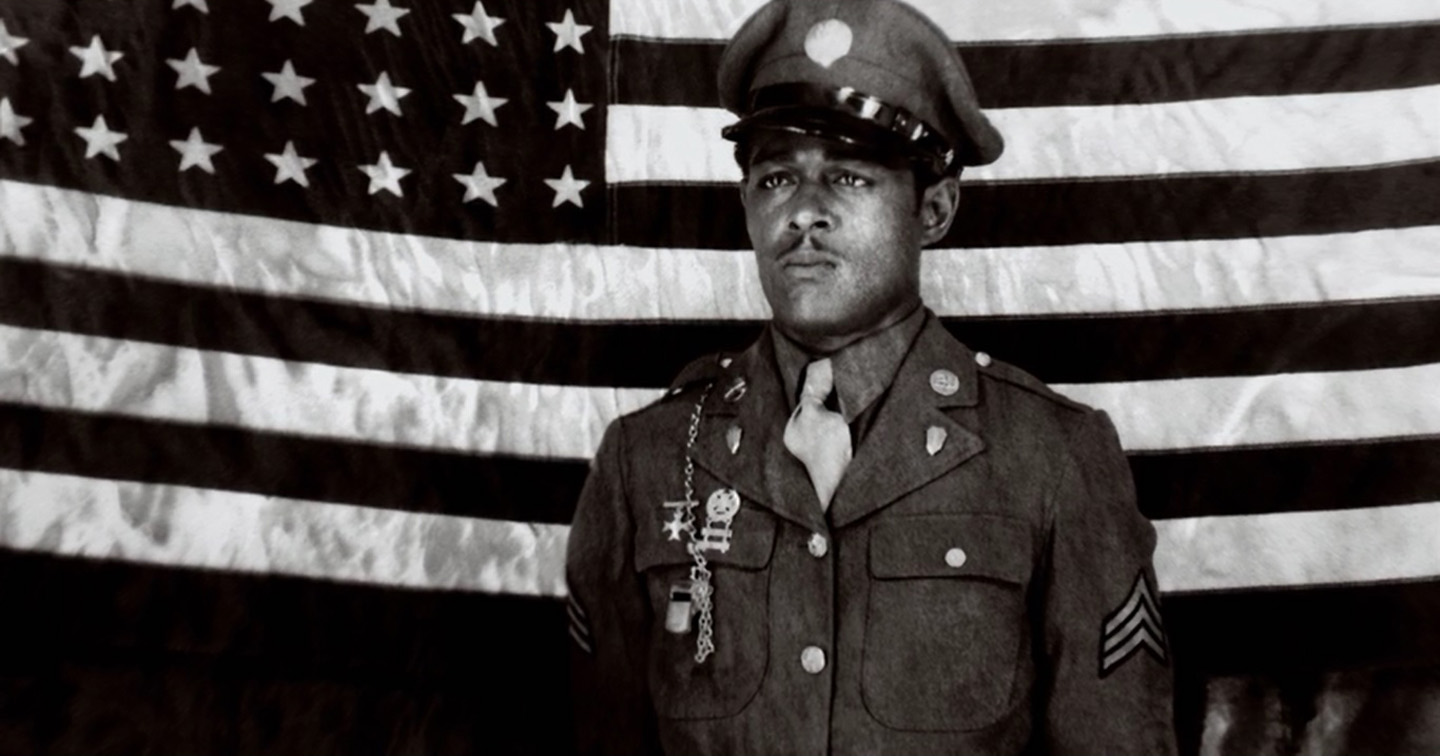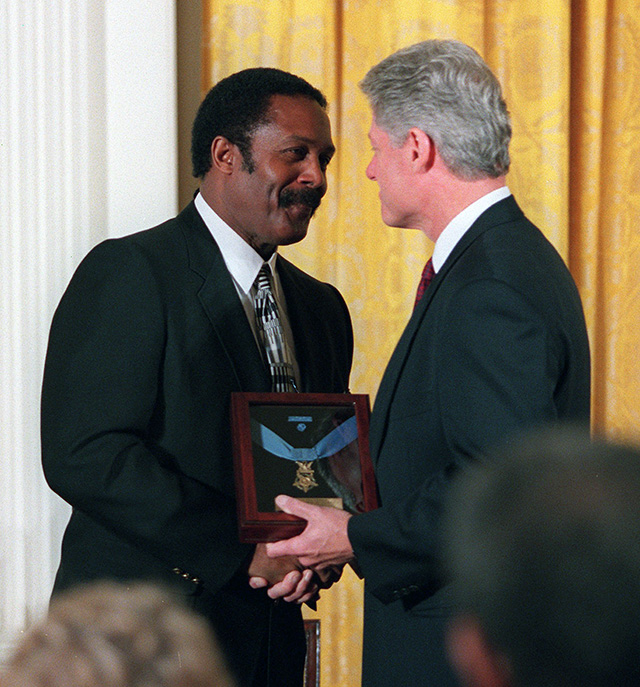A member of the 12th Armored Division with a group of Nazi prisoners in April 1945. (U.S. Government)
‘A stab in the back’: Edward Carter, the war hero kicked out of his own country’s Army
Edward Carter, a war hero who loved his country more than it loved him, was born in Los Angeles in May 1916, a son of missionaries, a Black father and an Indian mother who gave the boy a worldly upbringing. He spent much of his childhood in India and China, where he learned to speak Hindi, Mandarin, and German. As an adventurous young man, he joined an American volunteer unit fighting fascism in Spain.
Back in Los Angeles before the outbreak of World War II, Carter enlisted in the U.S. Army and rose in rank to staff sergeant only to accept a demotion so he could join a combat unit in Europe. Black soldiers, the military reasoned, were unfit to lead white troops.

Assigned to the 12th Armored Division, Carter’s rifle squad was advancing along the Rhine on March 23, 1945, when they came under fire. He volunteered to lead three other soldiers to scout out the enemy. Two of the Americans were promptly killed. Rather than retreat, Carter carried on alone as volleys of gunfire riddled his body with, by his count, “nine bullet holes.” As he lay bleeding in the grass, eight Germans approached to finish him off.
But at the last moment, Carter leapt up and gunned down six of them, taking the other two prisoner. He had all but single-handedly eliminated an obstacle to the American advance.
After the war, Carter returned to an America torn by racism and McCarthyism, and in 1949 he was drummed out of the military without explanation. The reason emerged years later: the Army suspected that Carter harbored communist sympathies linked to his service in Spain, an unfounded allegation for which the military later apologized. Carter was deeply embittered.
In his country’s hour of need, he took to the frontlines with a submachine gun in hand, he wrote to an advocate at the ACLU. “My reward? A stab in the back.”
He took a job at a tire factory in Los Angeles, where he worked until his death of lung cancer at the age of 46. Carter was buried in his old uniform in a humble ceremony at Sawtelle National Cemetery in Los Angeles in 1963.
Three decades later, the army commissioned a study of Black soldiers from World War II who had been overlooked for the Medal of Honor, the nation’s highest award for bravery. Despite the service of more than a million African Americans in the war, not one had received the honor.
Seven soldiers were identified, including Carter. On Jan. 13, 1997, the highest officials in military and government gathered for a ceremony at the White House, where President Clinton handed the Medal of Honor to Edward Carter III, Carter’s son.

The next day, Carter’s body was reinterred at Arlington National Cemetery with full military honors. Soldiers of the 3rd U.S. Infantry Regiment stood in light snow and fired a three-volley rifle salute over the Potomac. Carter’s widow, Mildred, sitting graveside, clutched an American flag in her lap.
● ●
Carter’s story is included in the documentary series “Medal of Honor.” 👉 Netflix
This article is from the California Sun, a newsletter that delivers must-read stories to your inbox each morning . Sign up here.
Get your daily dose of the Golden State.